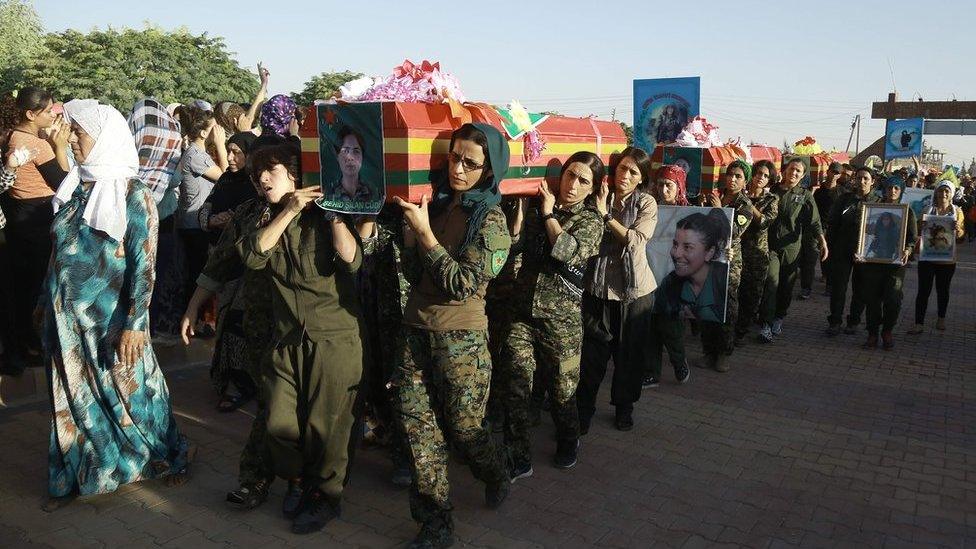Turkey's Demirtas warns leaders heading towards civil war
- Published
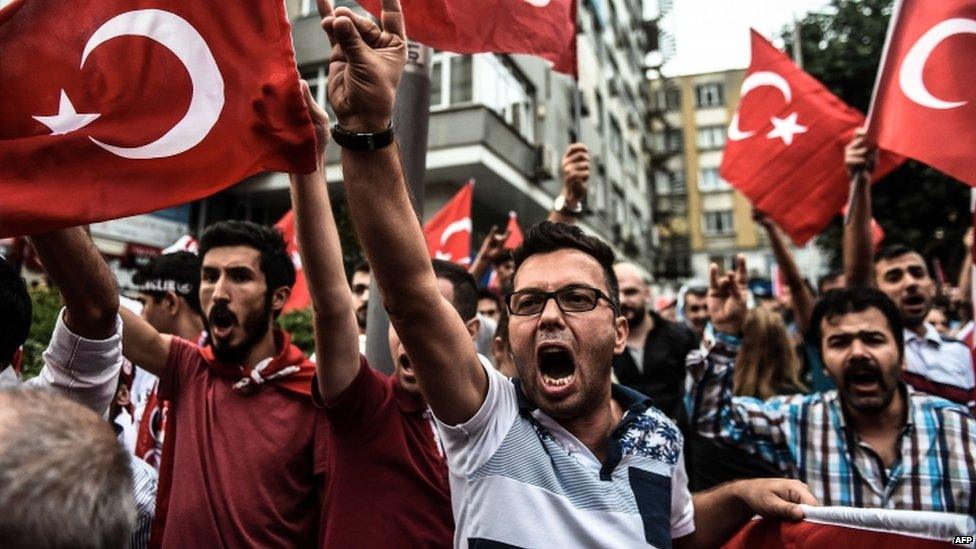
Nationalist demonstrators have taken to the streets, enraged by deadly PKK attacks on security forces
The head of the pro-Kurdish opposition HDP party has accused the ruling AKP of orchestrating nationalist attacks and pushing Turkey towards civil war.
No-one has been killed, but Selahattin Demirtas said his supporters were facing a "campaign of lynching".
Later Mr Demirtas was prevented from going to the south-eastern city of Cizre, currently under military curfew.
Violence between the army and the militant Kurdish PKK has escalated since a ceasefire collapsed in July.
Turkey is to hold elections in November after inconclusive polls in June.
PM's denunciation
As the atmosphere in Turkey becomes increasingly febrile, Mr Demirtas questioned whether the vote could even go ahead while temporary military zones were in place in 100 areas of Turkey's mainly Kurdish south-east. He said there had been 400 attacks on HDP offices in two days.
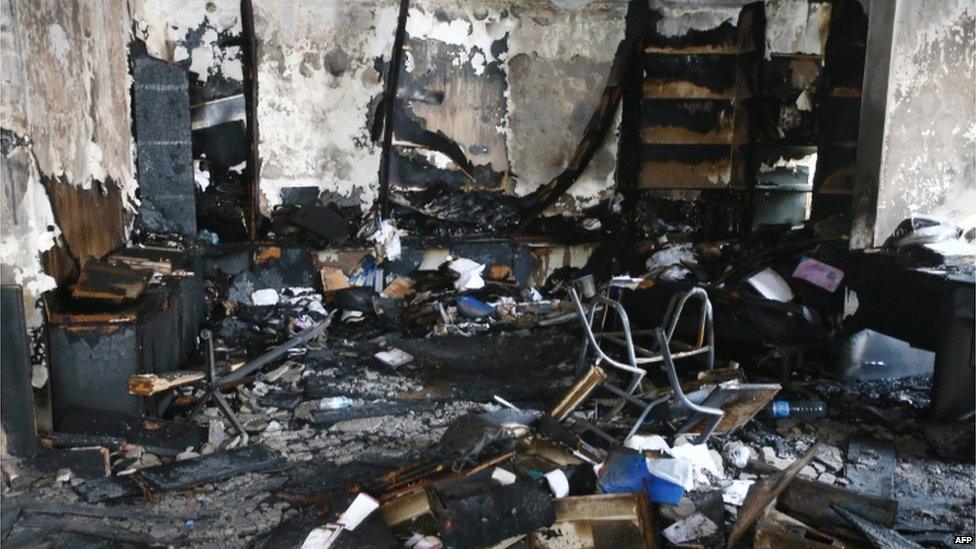
The headquarters of the HDP in Ankara was badly damaged by fire on Tuesday night
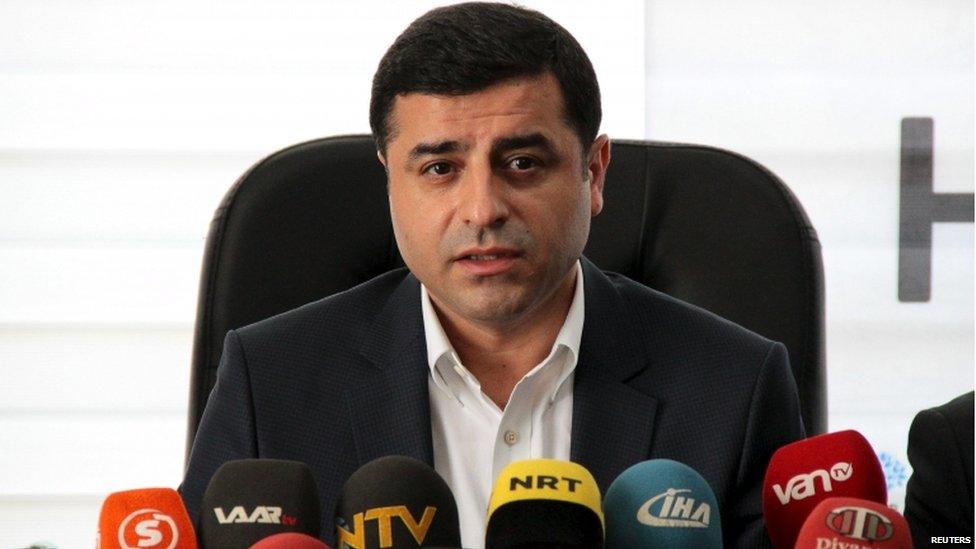
HDP leader Selahattin Demirtas argued that his party had not supported a return to war with the Kurdish militant PKK
Prime Minister Ahmet Davutoglu took to Twitter to denounce the attacks. "It is unacceptable to damage media institutions, political party buildings and the property of our civilian citizens," he said.
But Mr Demirtas accused the prime minister and President Recep Tayyip Erdogan of taking "the decision to start this war and intensify it".
The HDP denies claims by nationalists that it is a political wing of the militant PKK (Kurdistan Workers' Party) and its leaders have accused the ruling AK Party of stoking unrest to drum up nationalist support ahead of the 1 November vote.
The HDP entered parliament for the first time in June elections; its 14% share of the vote deprived the AKP of a parliamentary majority.
Over the summer, the AKP made a vain attempt to reach a coalition deal with rival parties.
'Living together'
The headquarters of the HDP (Peoples' Democratic Party) headquarters in Ankara was attacked by a crowd and set alight late on Tuesday while Kurdish shops and stores in several cities were targeted by nationalists.
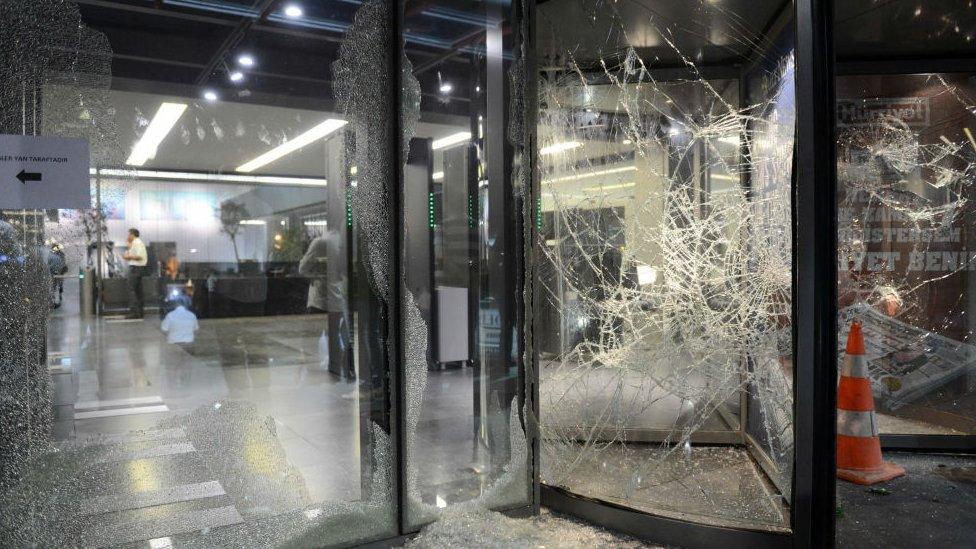
Windows at the Hurriyet newspaper in Istanbul were smashed
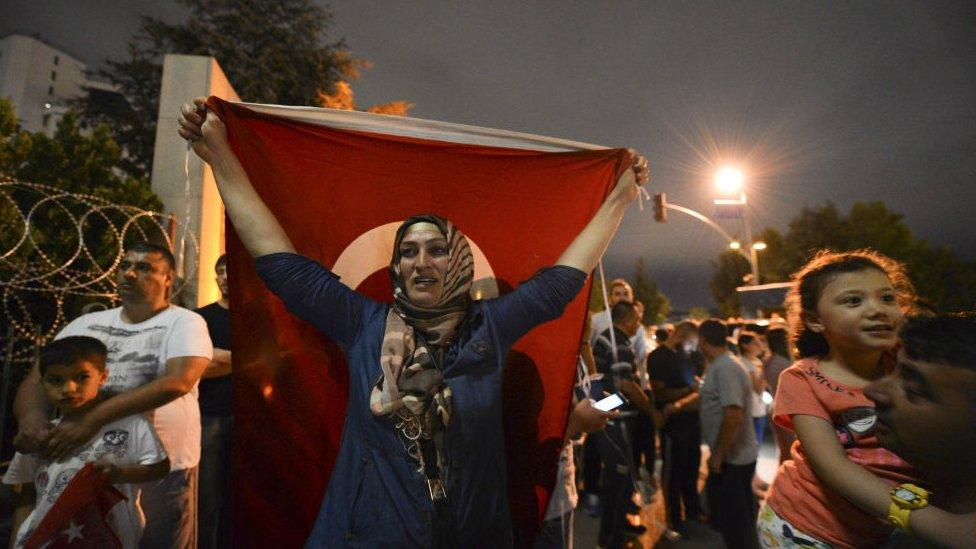
Protesters accuse Hurriyet newspaper of misquoting the president
HDP lawmaker Garo Paylan complained that police stood by as the party building was attacked. "Police are just watching, he said. "What's being broken there is our hope of living together."
Two newspapers, Hurriyet and Daily Sabah, were also attacked. Hurriyet had earlier been accused by President Recep Tayyip Erdogan of misquoting him.
Although no-one has been killed in nationalist protests, dozens of members of security forces as well as militants have died in recent days.
Fourteen police lost their lives in a bomb attack on a minibus near the eastern border on Tuesday, a day after 16 soldiers were killed in another PKK bombing.
Turkish fighter jets launched a wave of attacks on PKK bases in northern Iraq and ground forces crossed the border in pursuit of Kurdish militants for the first time since a ceasefire with the PKK two years ago.
Body in refrigerator
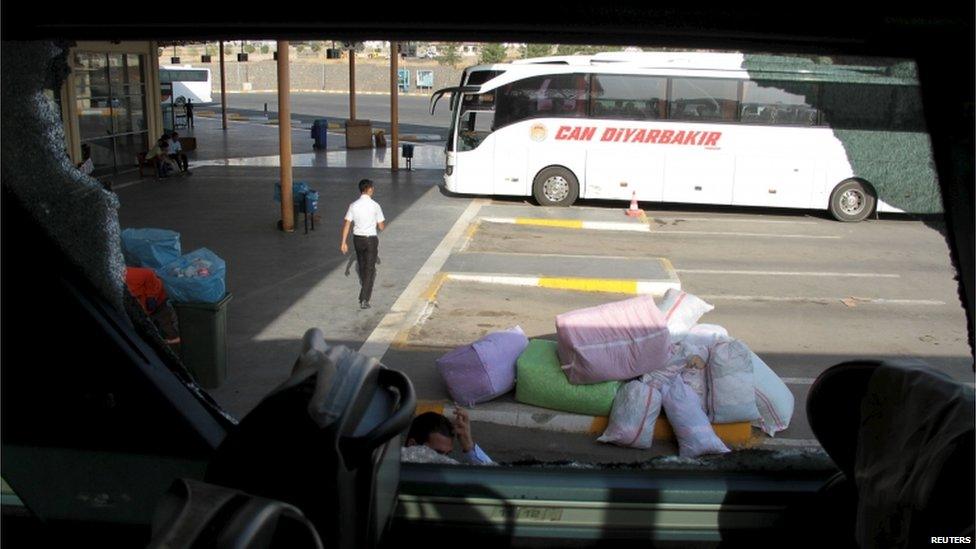
Bus companies cancelled journeys from the south-eastern city of Diyarbakir because of the violence
In Cizre, one resident told the BBC that a curfew imposed after deadly clashes meant that people were being kept under siege by security forces.
The body of a 10-year-old boy killed in the violence was being kept in a refrigerator by family members because restrictions on movement meant they could not take him to the mortuary.
On Wednesday, a convoy of vehicles carrying Mr Demirtas and other HDP officials was stopped by police as they tried to travel to Cizre.
The delegation was blocked outside the town of Midyat, about 90km (55 miles) west of the city.
Mr Demirtas said the delegation would continue on foot, according to AFP news agency.
More than 40,000 people have died since the PKK launched an armed campaign in 1984, calling for an independent Kurdish state within Turkey.
The ceasefire that began in 2013 unravelled in July, after a suicide bombing by suspected Islamic State militants near the border with Syria. The attack led to mutual recriminations between Kurdish groups and Turkey.

Are you in Ankara? Did you take part in the protests in Istanbul? You can share your experiences by emailing haveyoursay@bbc.co.uk, external.
Please include a contact number if you are willing to speak to a BBC journalist. You can also contact us in the following ways:
WhatsApp: +44 7525 900971
Send pictures/video to yourpics@bbc.co.uk, external
Tweet: @BBC_HaveYourSay, external
Send an SMS or MMS to +44 7624 800 100
- Published9 September 2015
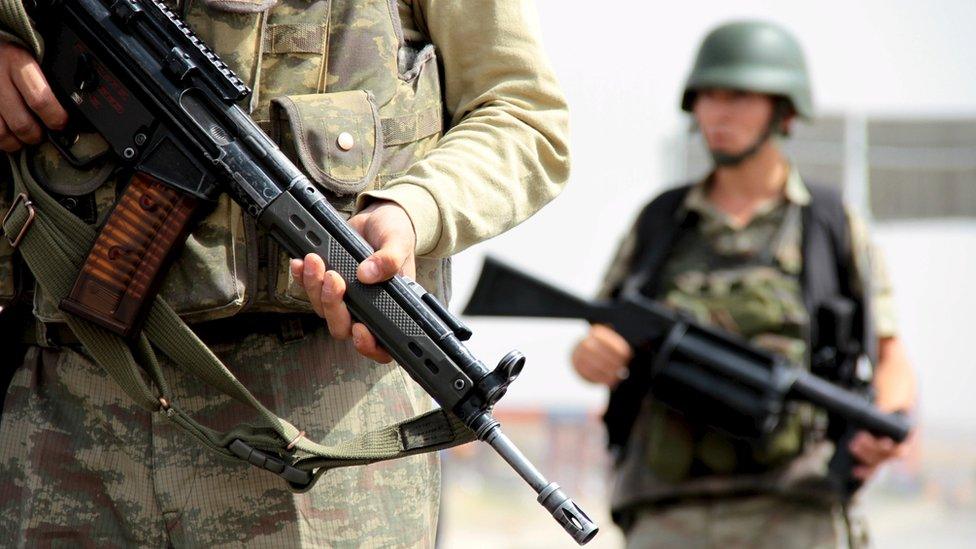
- Published2 September 2015
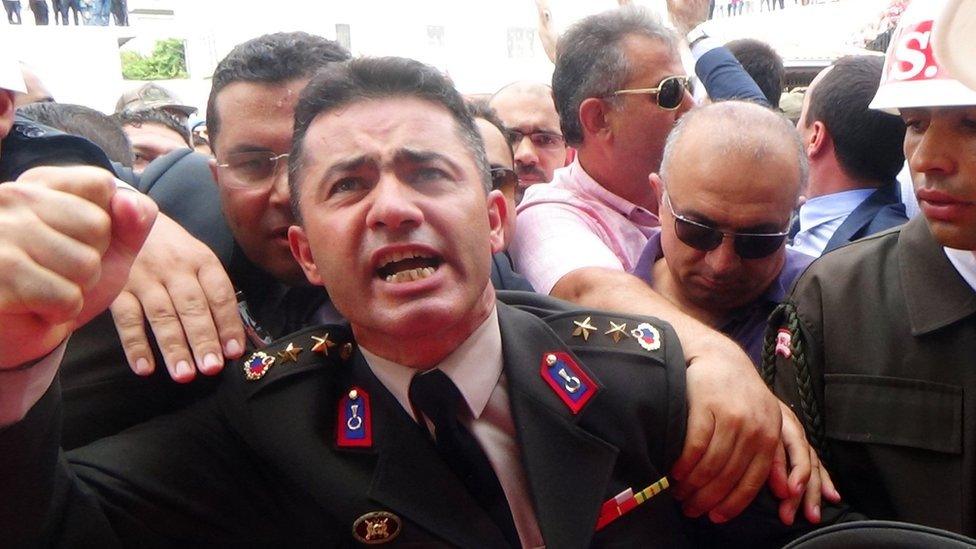
- Published23 August 2016
